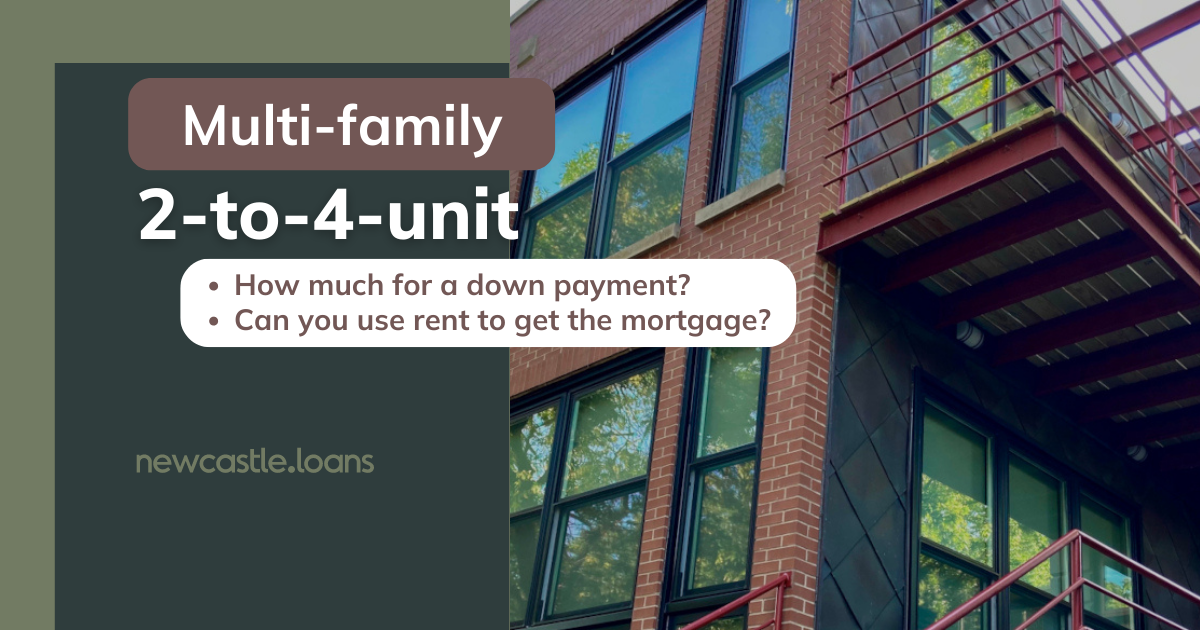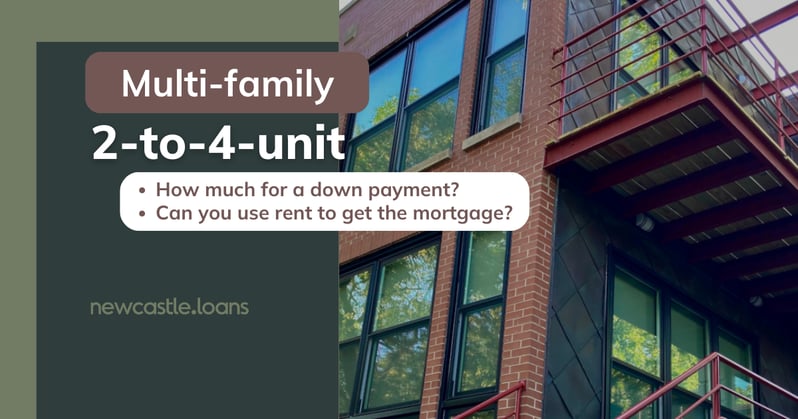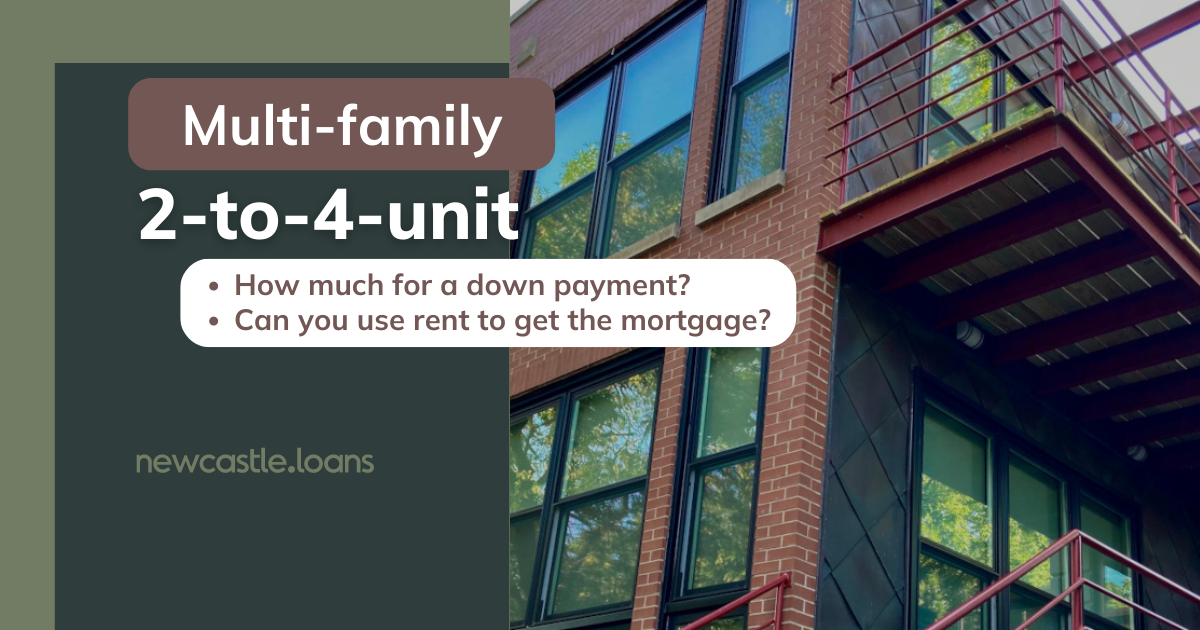Buying a multi-family property can be a smart investment move, but figuring out the down payment can feel like a puzzle. How much do you need to set aside?
What factors affect this amount? If you’re trying to get your foot in the real estate door, knowing the right down payment is crucial. It’s not just about securing the property; it’s about ensuring your financial stability and maximizing your investment returns.
By understanding the nuances of down payments, you can better navigate your way to becoming a successful property owner. Dive into this article to discover how to strategically plan for your multi-family property purchase and make informed decisions that will benefit your future.
Multi-family Property Basics
Multi-family properties have more than one unit. They can house several families. Apartments and duplexes are examples. Each family has its own space. These properties are a good investment. They provide rental income. You can live in one unit and rent others. This helps with mortgage payments.
- Duplex: Two units in one building.
- Triplex: Three units together.
- Quadplex: Four units in one place.
- Apartment Buildings: Many units, often in cities.
- Townhouses: Connected homes, each a separate unit.

Importance Of A Down Payment
A down payment is the money you pay at the start. It shows lenders you are serious. Lenders feel safer with more money down. It helps in getting a mortgage approval. Small down payments might make lenders worry. They might say no to your loan. So, having a bigger amount helps a lot.
With a bigger down payment, your monthly bills are lower. You save money in the long run. You also get better loan terms. This means paying less in interest. A large down payment also means you have more home equity. This is good if you sell your property later. It’s a wise choice for most buyers.
Standard Down Payment Requirements
Conventional loans require a higher down payment. Usually, it’s about 20% of the property’s price. Lenders like this because it lowers their risk. Some programs offer 15% down payment options. But you may need to pay for private mortgage insurance. This extra cost can be avoided with a larger down payment.
FHA loans are good for first-time buyers. They offer a lower down payment of 3.5%. This makes buying easier for many people. An FHA loan requires mortgage insurance. This means you pay extra each month. But it helps you buy a home sooner.
VA and USDA loans are special. They often require no down payment at all. VA loans are for veterans and their families. USDA loans are for rural areas. Both types help people buy homes without saving lots of money first. These loans make buying homes more affordable.
Factors Influencing Down Payment Amount
A good credit score helps. It can lower down payment needs. Banks like reliable borrowers. A high score means trust. Trust can reduce upfront costs. Bad credit? More money needed. Lenders worry about risk. They ask for bigger payments. Improving your score helps. Pay bills on time. Keep debts low. Your score will rise. Better score, better deals.
Location matters. Busy areas might need more money down. Popular places attract more buyers. Prices are higher. Rural areas might need less. Fewer buyers mean lower prices. Market trends change often. Watch them closely. Hot markets demand more cash. Slow markets might need less. Study the location well. Understand its value.
Experience counts. Seasoned investors often get better deals. Lenders trust them. They know the market well. New investors might face challenges. Lenders see risk in inexperience. They ask for higher down payments. Learning helps. Gain knowledge. Build trust with banks. Experience opens doors to better opportunities.
Strategies For Saving For A Down Payment
Create a budget. List all your monthly expenses. Cut unnecessary costs. Track every penny you spend. Use apps or notebooks to track. Save a small amount every week. This builds your savings over time.
Consider safe investment options. Savings accounts are a good start. Bonds or mutual funds can help too. They offer returns over time. Consult a financial advisor for advice. They can explain the risks. Choose what fits your needs.
Some programs offer help with down payments. Check local options. Grants don’t need to be repaid. They can reduce your costs. Research online for available programs. Eligibility may vary. Gather all required documents. Apply early for better chances.

Alternatives To Traditional Down Payments
Seller financing means the seller helps you pay. They become the bank. You pay them monthly instead of a bank. This is helpful if banks say no. It’s easier to get approved. Seller financing can be flexible. You might pay less each month. It’s a good choice for some buyers.
Partnerships and joint ventures let you team up with others. You pool money together. This makes buying easier. Everyone shares the costs. Everyone shares the rewards too. Partners can be friends or family. You all must agree on terms. Make sure everyone trusts each other. Working together can be powerful. You achieve more with teamwork.
Risks And Rewards Of Low Down Payments
Low down payments can seem appealing. They offer less upfront cash needed. But they carry risks. Higher monthly payments can strain budgets. Interest rates might be higher. This means more money paid over time. Property value might drop. You could owe more than the property is worth. Maintenance costs may add up. If income dips, payments might be hard. Savings for emergencies could be low. Financial stress can rise.
Low down payments allow buying more properties. This can grow a portfolio fast. Cash flow from rent can cover costs. Diversifying investments becomes easier. More properties mean more income streams. Value increases over time can boost wealth. Tax benefits might be available. Equity builds with each payment. Owning more real estate can be a wise choice. Market growth can lead to big gains.
Expert Tips For First-time Investors
Choosing the right loan is important. Banks offer various types of loans. FHA loans need 3.5% down payment. VA loans need 0% down payment. Conventional loans may ask for 20% down payment. Each loan type has rules. Loan rules affect payments. Always talk to a loan expert.
Look for properties in good locations. Check the neighborhood. Is it safe? Are there schools nearby? Property condition matters too. Older buildings may need repairs. Repairs can cost money. Make sure the price is fair. Compare with other properties. Ask a real estate agent for help.

Frequently Asked Questions
What Is The Typical Down Payment For Multifamily Homes?
The typical down payment for multifamily properties ranges from 15% to 25%. This varies based on the lender’s requirements, the property’s size, and the buyer’s financial profile. A higher down payment can sometimes lead to better loan terms and lower interest rates.
Can You Buy Multifamily Property With 10% Down?
Yes, it’s possible to buy with 10% down, but it’s uncommon. Typically, this requires private mortgage insurance (PMI) and excellent credit. Some lenders may offer special programs, but they often come with stricter requirements and higher interest rates.
Does Down Payment Affect Loan Terms?
Yes, the down payment significantly influences loan terms. A larger down payment can lead to lower interest rates and monthly payments. It also reduces the lender’s risk, possibly resulting in more favorable terms for the borrower.
Are There Down Payment Assistance Programs Available?
Yes, several programs assist with down payments for multifamily properties. These programs vary by state and lender. They often cater to first-time buyers or those purchasing in specific areas. Researching local programs can provide financial relief and make purchasing more accessible.
Conclusion
Understanding the down payment for a multi-family property is vital. It helps plan your budget effectively. A standard down payment often ranges from 15% to 25%. This depends on the lender and your credit score. Save diligently for a smoother buying process.
Research different loan options available. Consider consulting with a financial advisor. They can offer personalized advice. Remember, a well-prepared buyer faces fewer surprises. Making informed decisions can lead to successful investments. Ready to take the next step? Start planning your down payment today.
Secure your future in real estate wisely.


